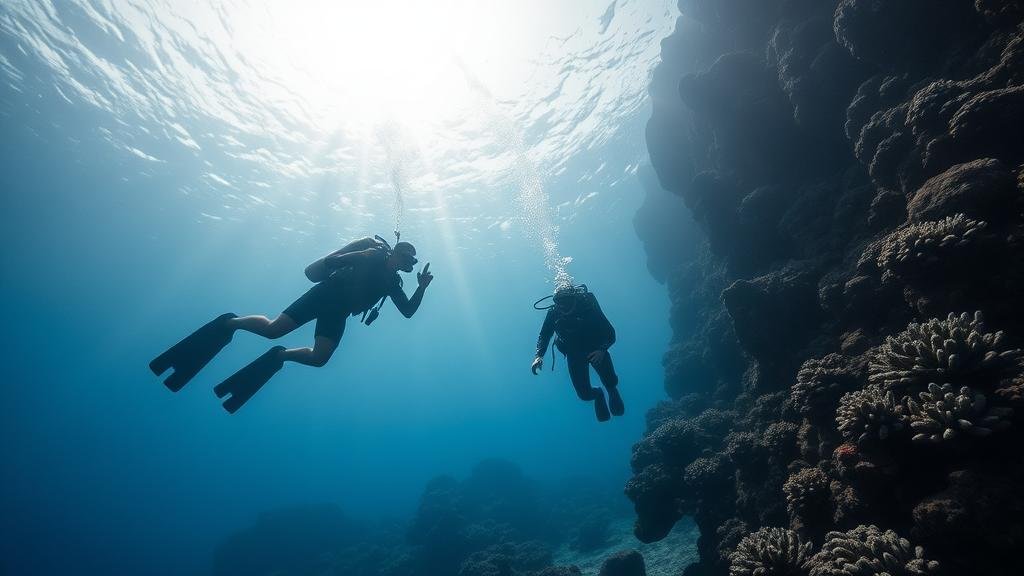How explorers protect themselves and marine ecosystems while diving.
How Explorers Protect Themselves and Marine Ecosystems While Diving
Diving is a thrilling adventure that requires explorers to protect themselves and the delicate marine ecosystems they encounter. With growing concerns about environmental degradation and personal safety, divers utilize various strategies to ensure their well-being and the sustainability of underwater environments. This article explores both protective measures for divers and strategies used to safeguard marine ecosystems during diving expeditions.
Self-Protection Techniques for Divers
Safety is a primary concern for divers, as underwater environments can be unpredictable. Divers must be equipped with specialized gear and knowledge to mitigate risks such as decompression sickness, encounters with marine life, and equipment failure.
- Use of Advanced Diving Equipment: Divers utilize state-of-the-art gear such as dive computers, which monitor depth and time to prevent decompression sickness. For example, the Suunto D5 dive computer, launched in 2019, provides real-time data, enhancing safety.
- Emergency Protocols: Useing emergency procedures, such as the buddy system, allows divers to react effectively to unexpected situations. In 2021, a study published in *Diving Safety Journal* highlighted that teams practicing emergency drills showed a 30% reduction in incident rates.
- Certification and Training: Proper training through certified organizations like PADI (Professional Association of Diving Instructors) ensures divers understand the risks and procedures necessary for safe diving experiences. For example, over 28 million divers have received training through PADI since its inception in 1966.
Protecting Marine Ecosystems
As the demand for underwater exploration increases, so does the potential for environmental harm. Divers play a critical role in protecting marine ecosystems by adopting sustainable practices and participating in conservation efforts.
- Responsible Diving Practices: Divers are encouraged to follow guidelines such as not touching or disturbing marine life and avoiding the removal of coral or other aquatic species. The “leave no trace†principle promotes minimal impact on ecosystems.
- Participating in Clean-Up Initiatives: Many diving organizations host underwater clean-up events. For example, the Project AWARE Foundation organizes annual events where divers collect marine debris, contributing to cleaner oceans and healthier habitats.
- Research and Monitoring: Divers often collaborate with marine biologists to monitor coral reef health and biodiversity. An example is the Coral Triangle Initiative in Southeast Asia, where divers assist researchers in data collection on coral conditions and fish populations.
Technological Innovations in Marine Conservation
The use of technology has become integral in both personal safety and conservation efforts within marine environments. From underwater drones to advanced monitoring systems, technology enables divers to be effective stewards of the ocean.
- Underwater Drones: Explorers use drones to survey coral reefs without direct human contact, reducing disturbance. For example, the use of technologies such as the SeaDrone has allowed researchers to capture detailed imagery while mapping changes over time.
- Environmental Monitoring Systems: Tools like the CoralWatch project involve scuba divers in assessing coral health using color-coded charts, allowing for community engagement and data collection crucial for conservation efforts.
Final Thoughts and Actionable Takeaways
As exploration continues to flourish, the dual focus on personal safety and environmental stewardship is vital for the future of diving. By understanding and implementing risk reduction techniques, divers can ensure their safety while respecting marine ecosystems. Explorers should:
- Invest in high-quality diving equipment and undergo proper training.
- Adopt responsible diving practices, following guidelines to minimize ecological impacts.
- Engage in conservation initiatives and support research to maintain the health of marine environments.
Through informed actions, divers can enhance their adventures and contribute positively to the underwater world, ensuring its beauty and biodiversity are preserved for generations to come.



